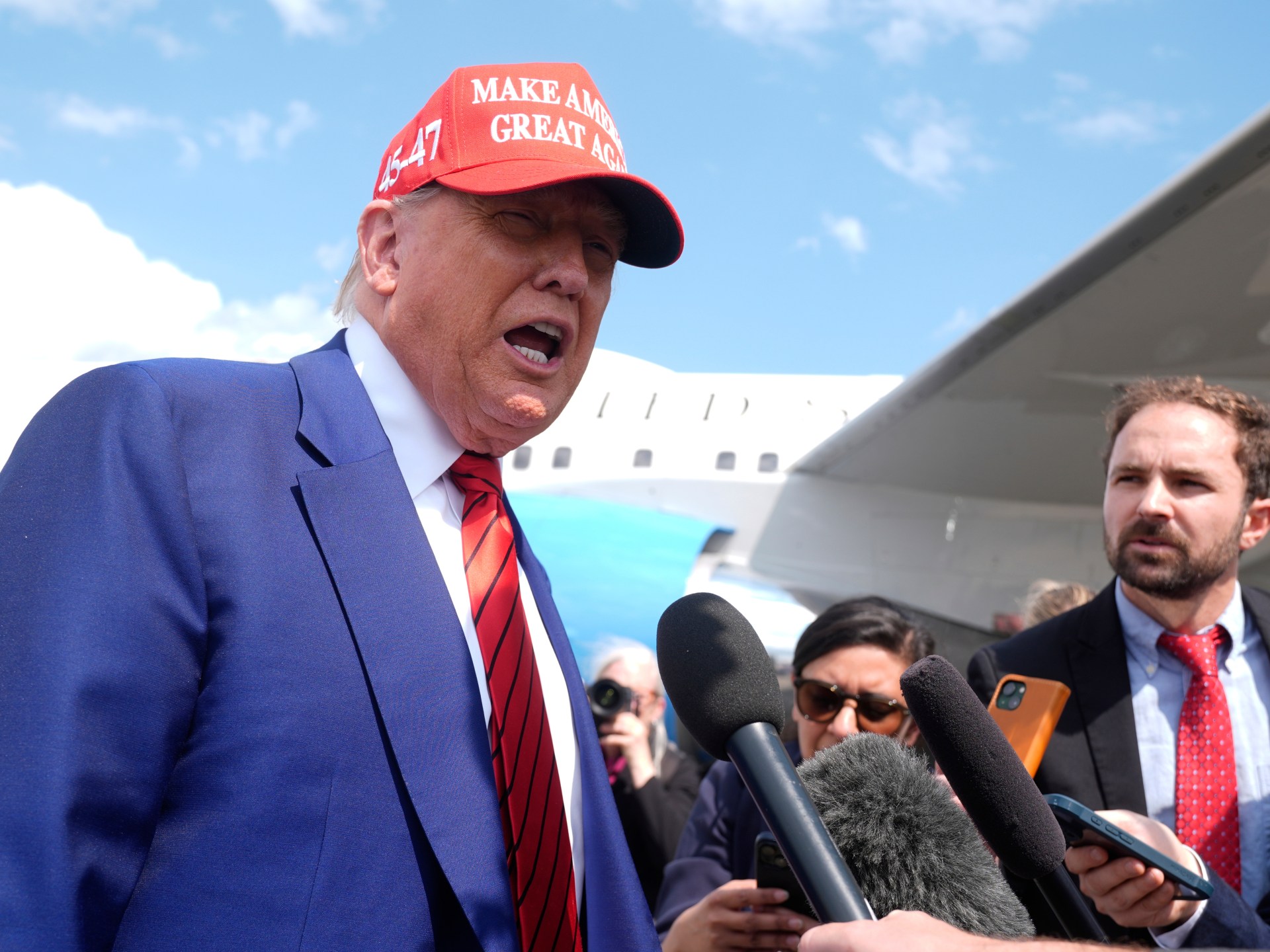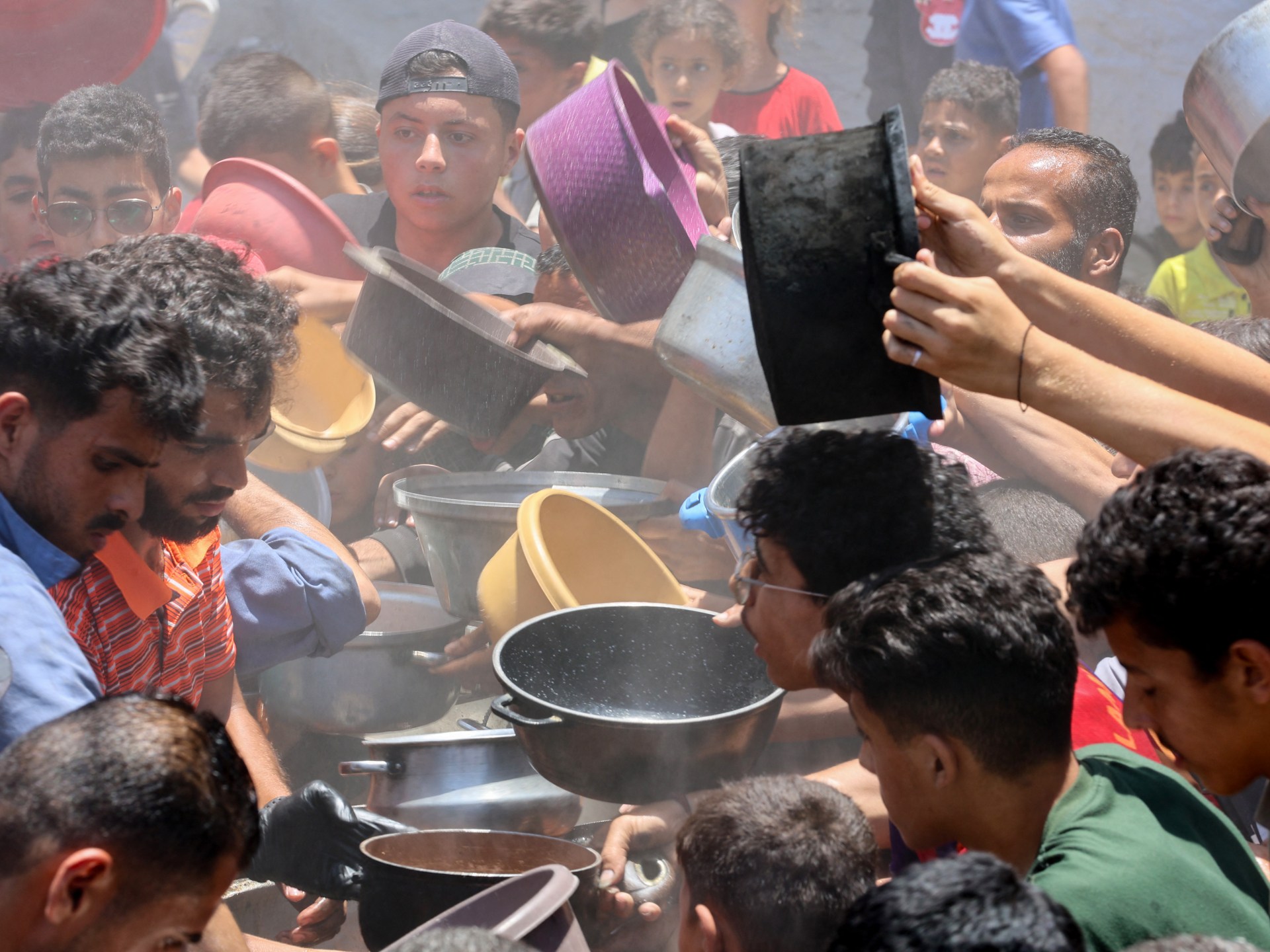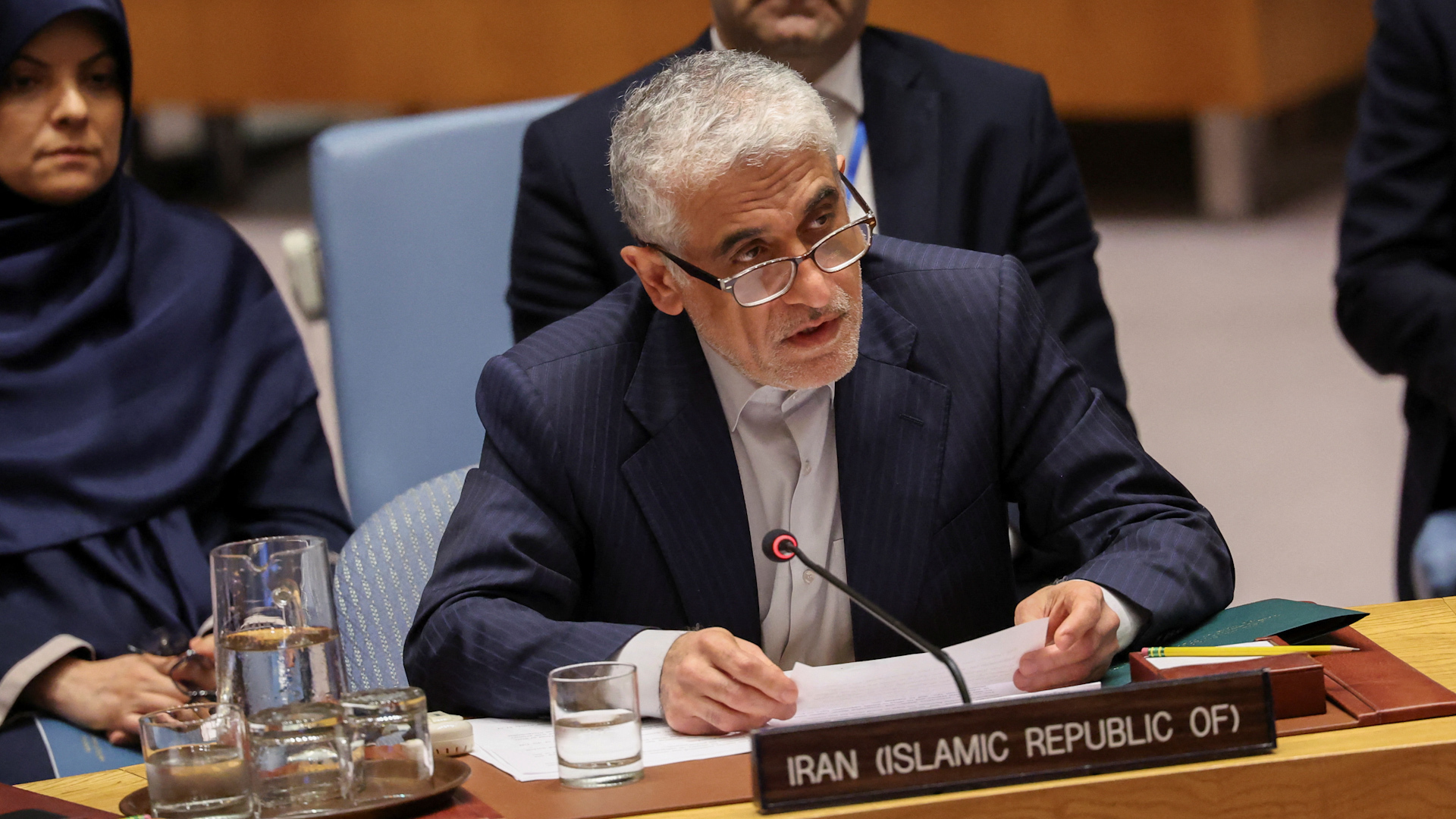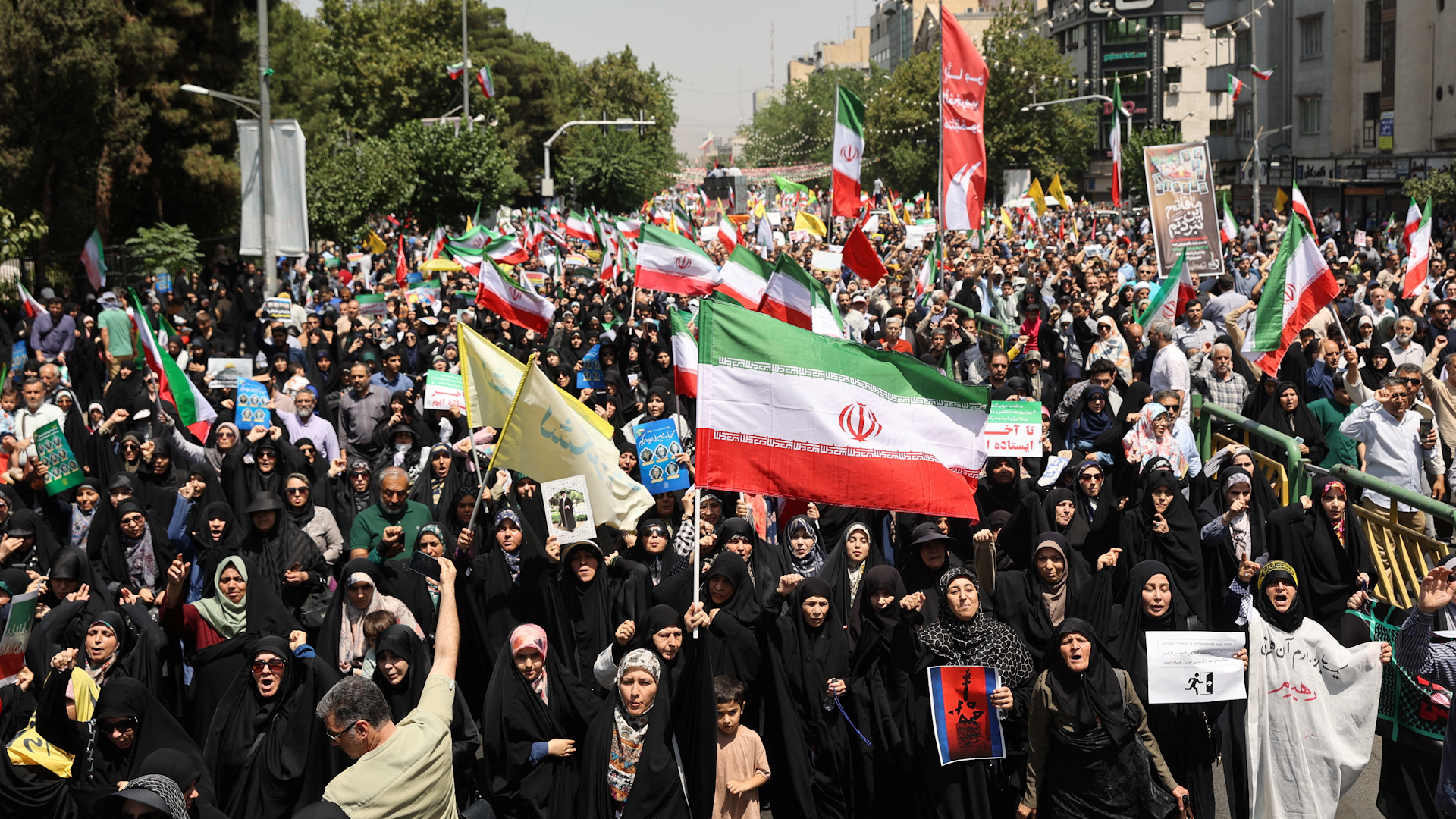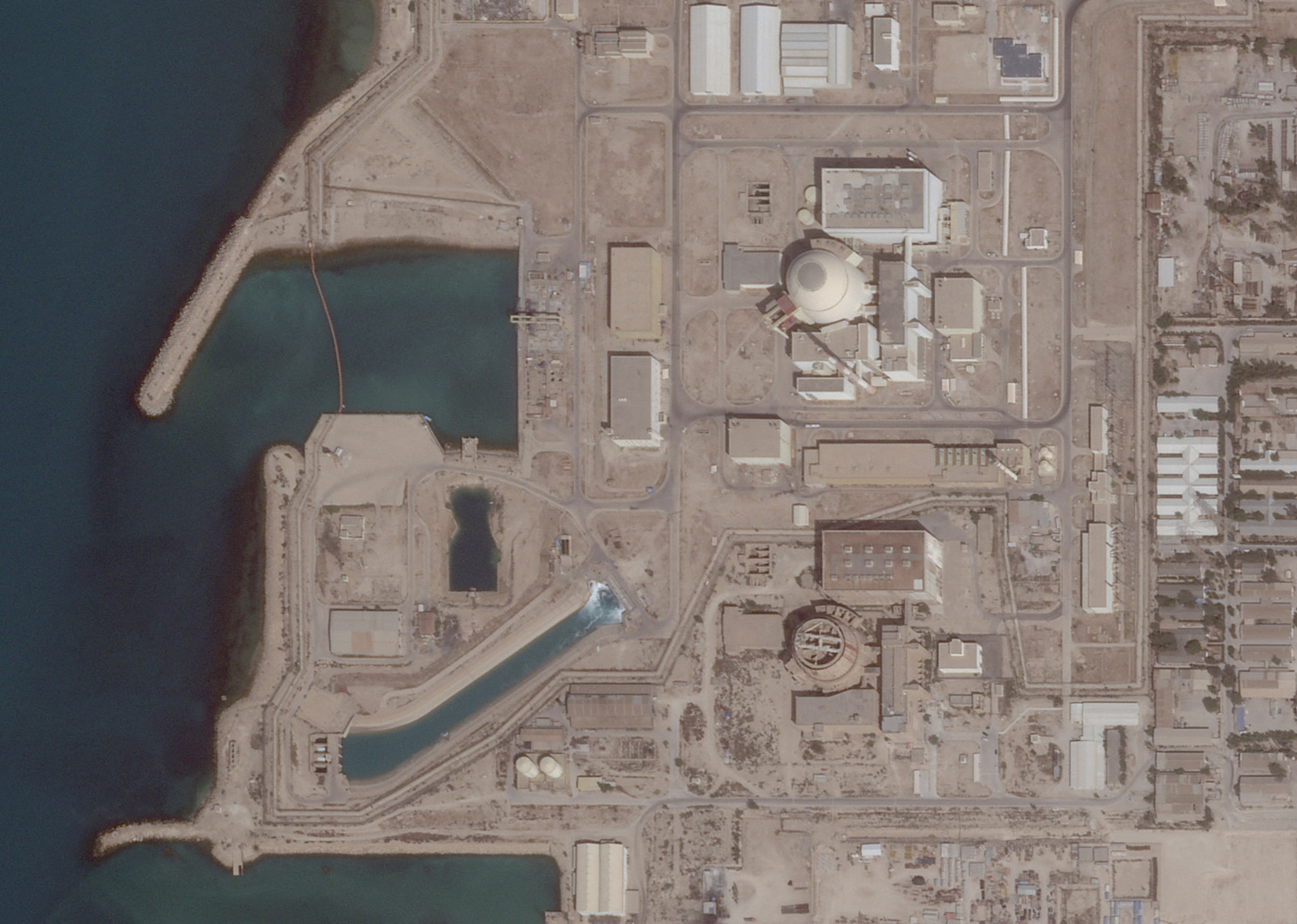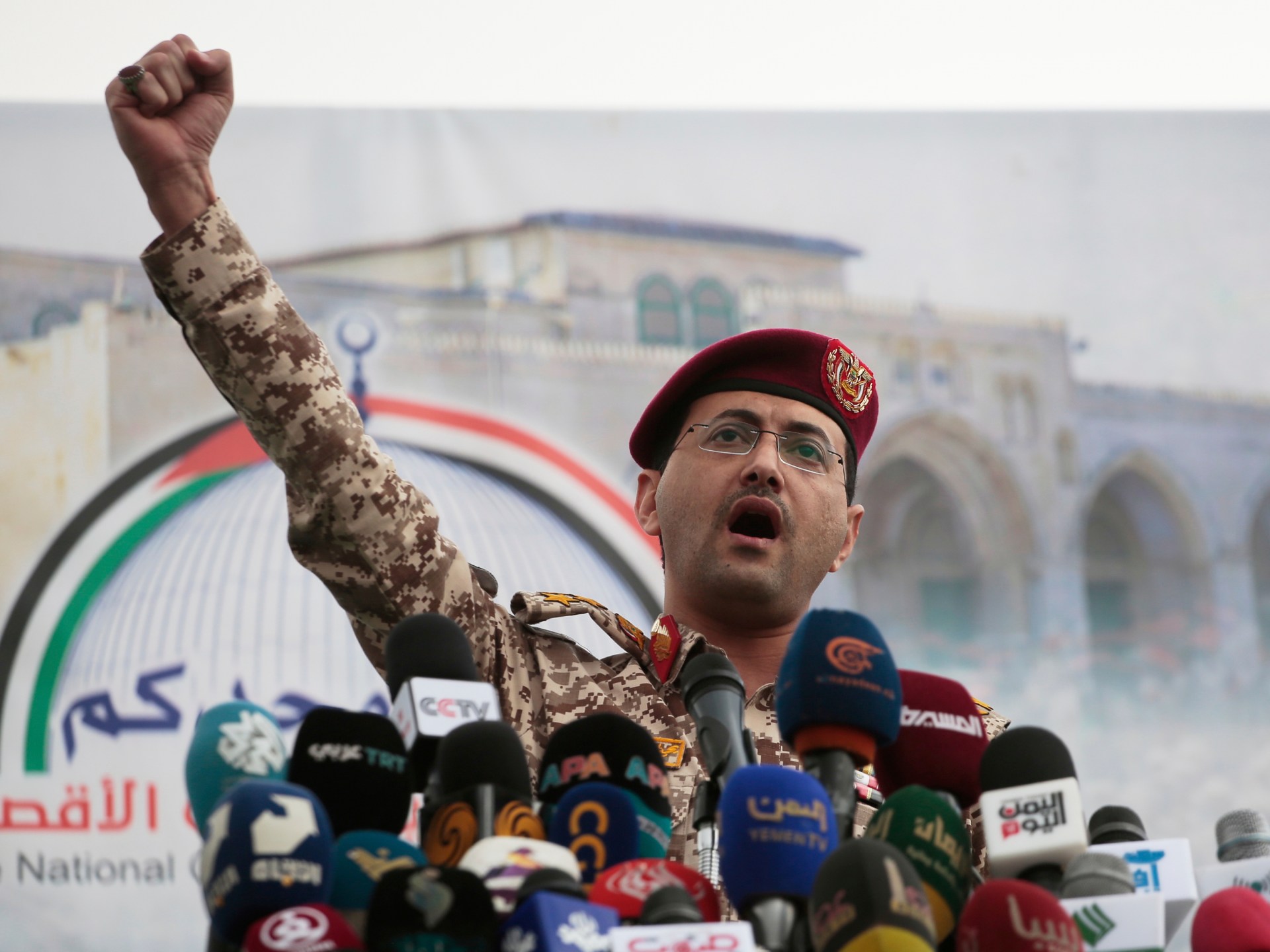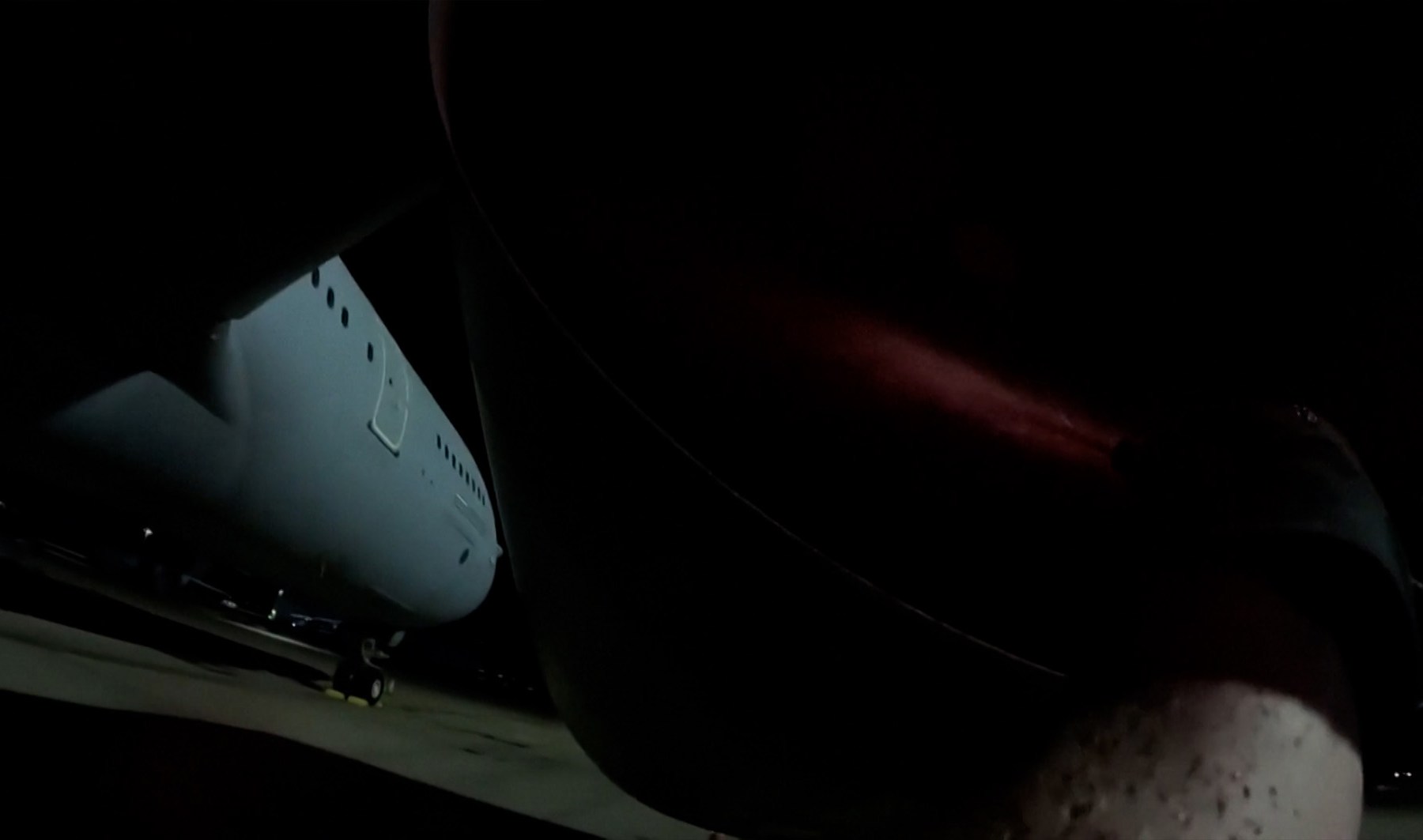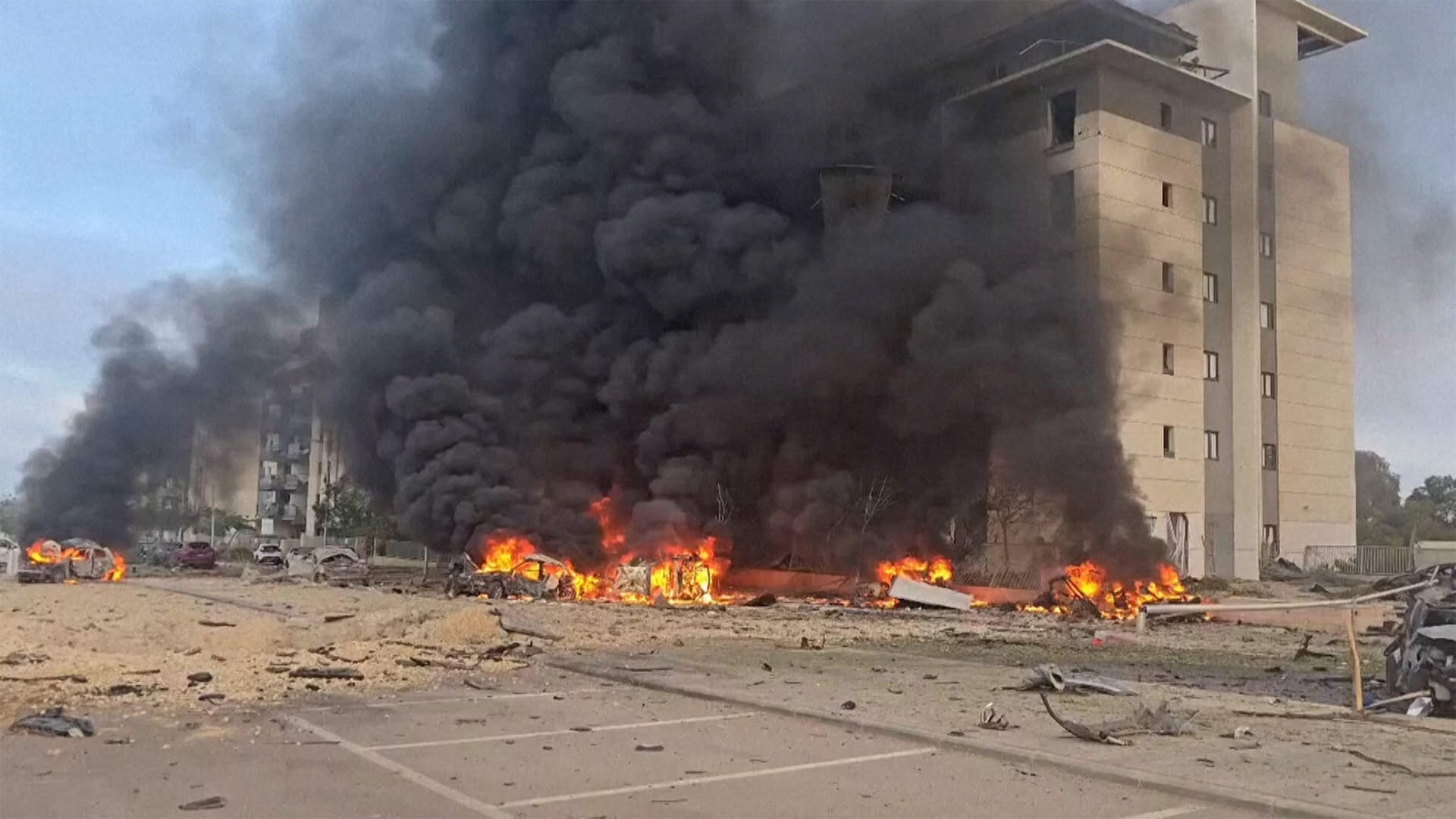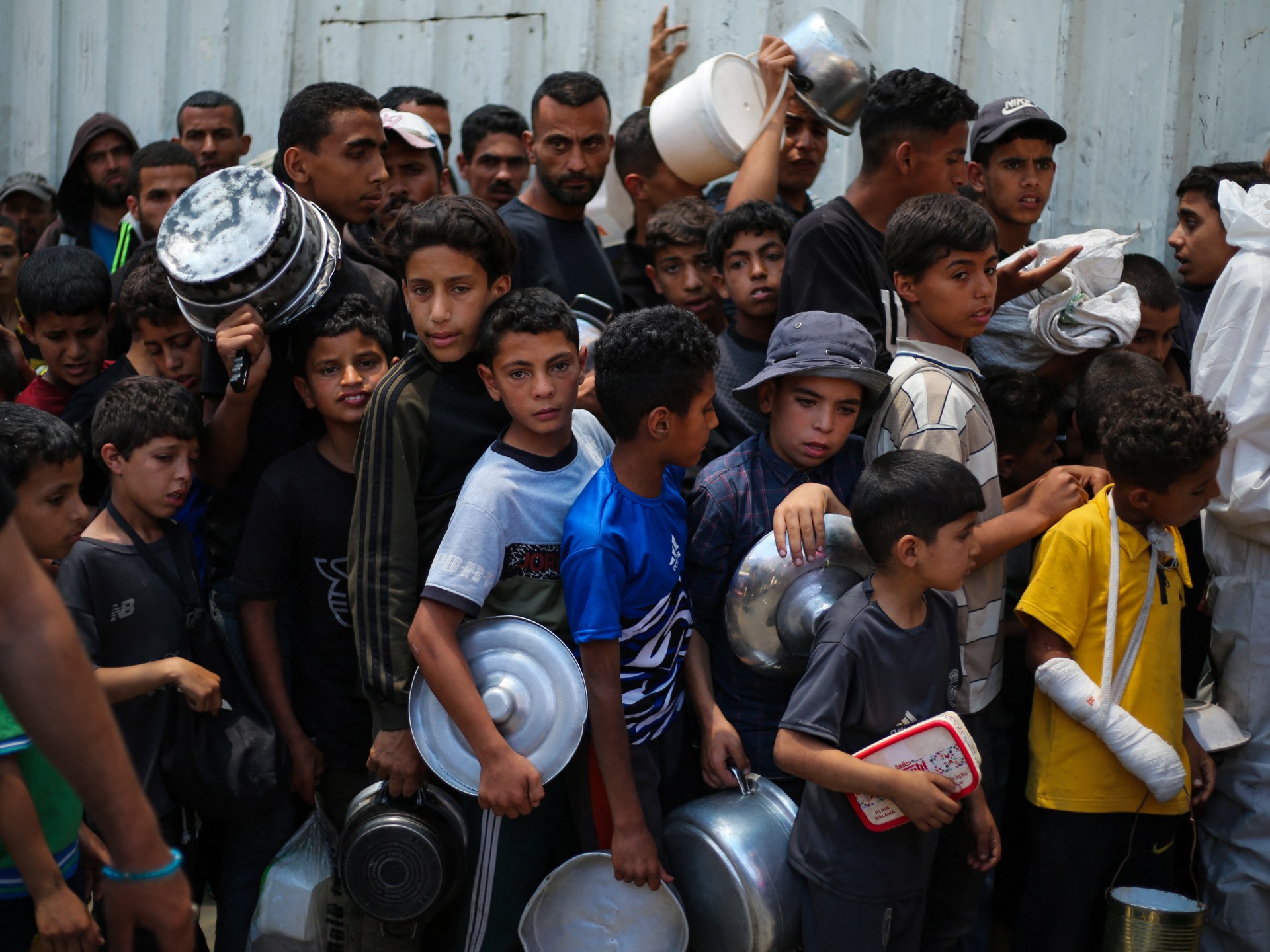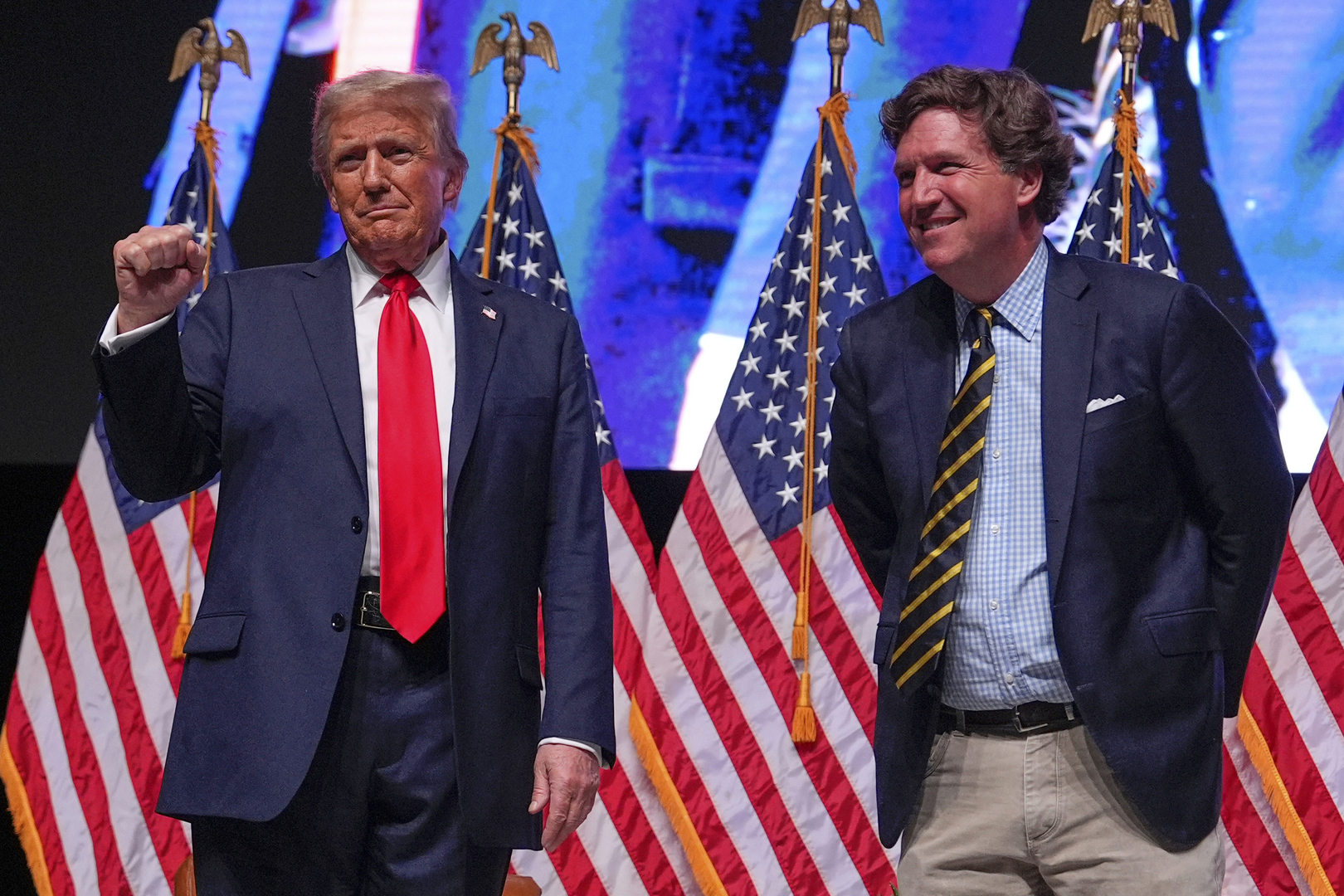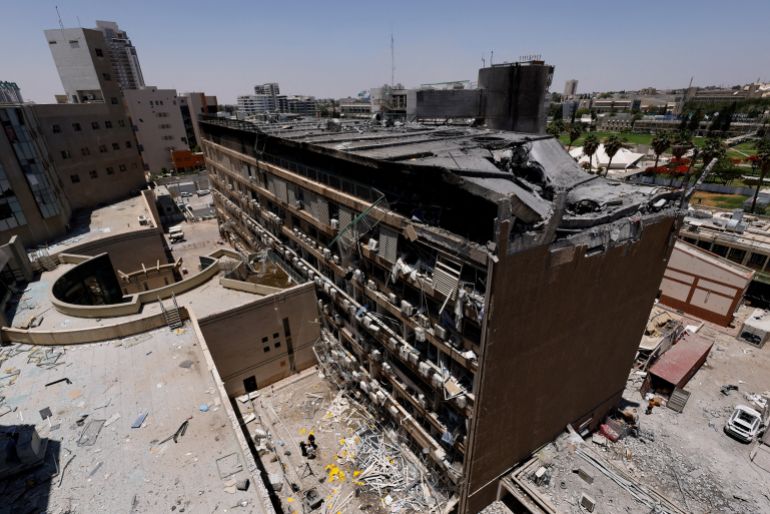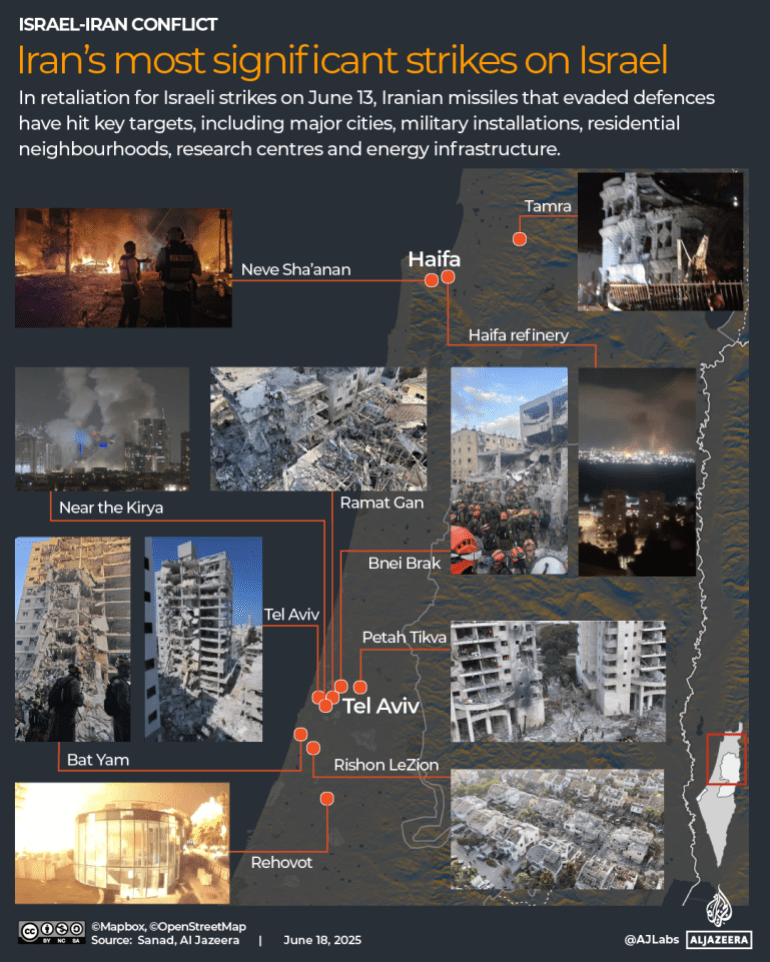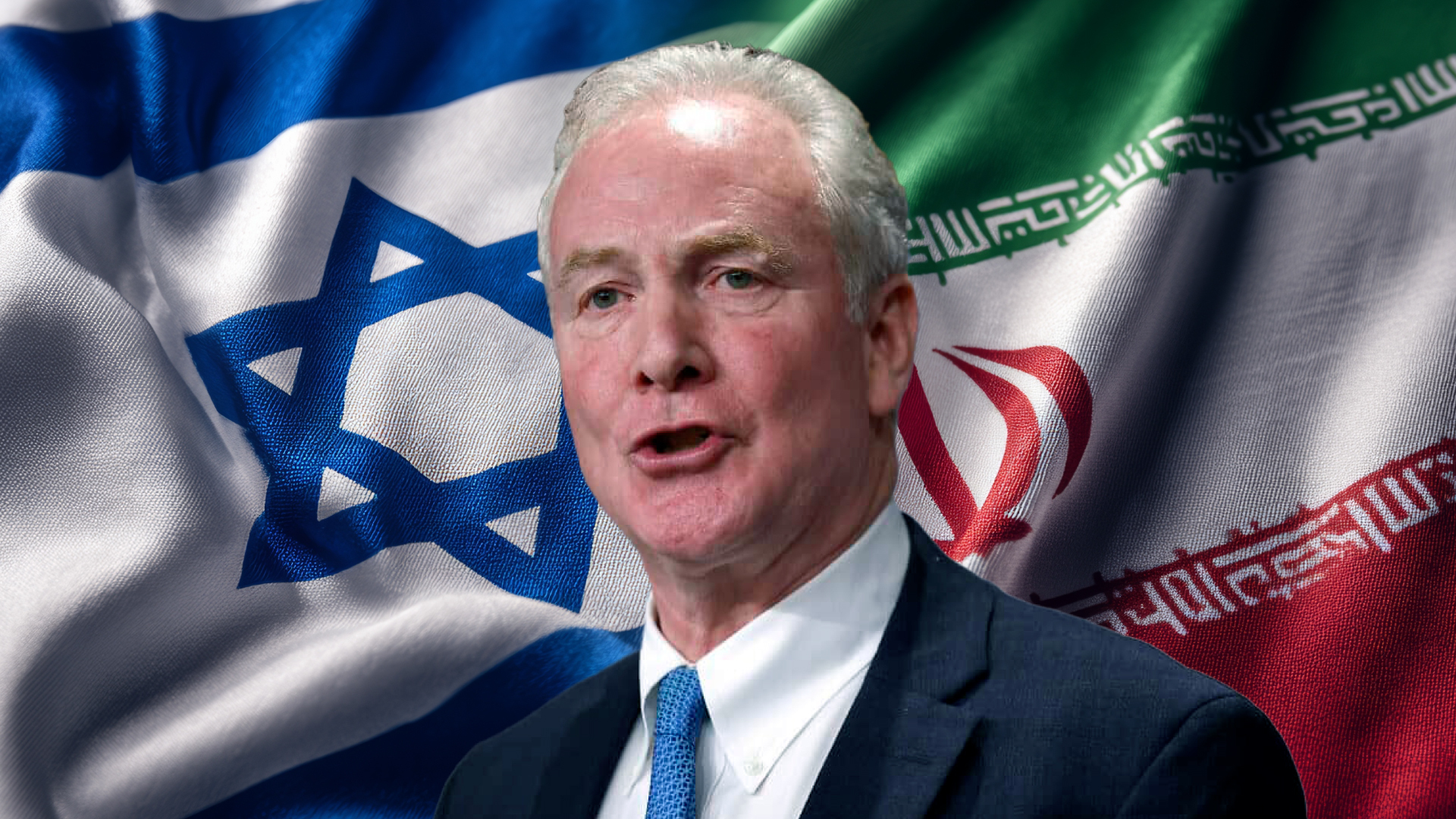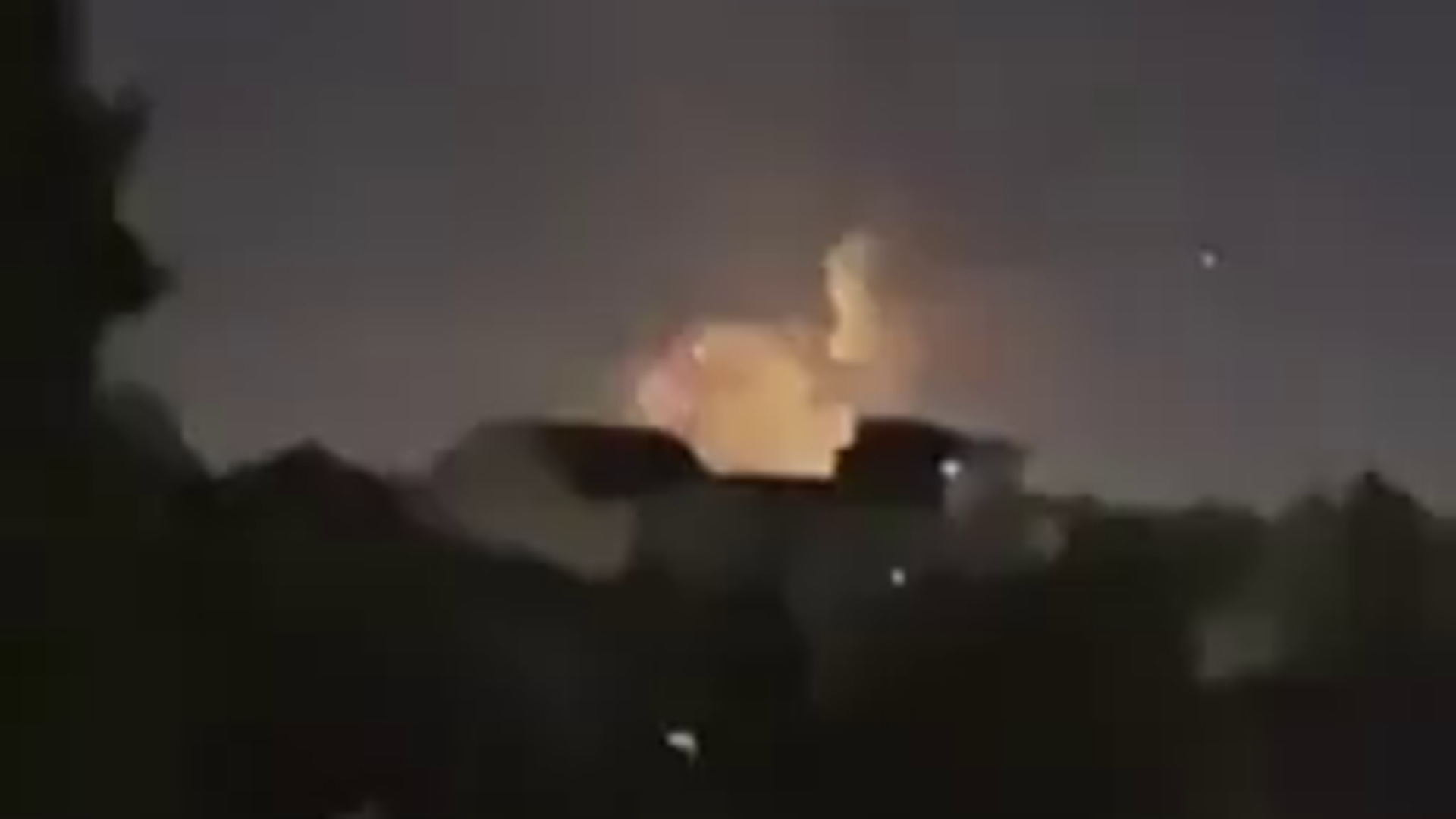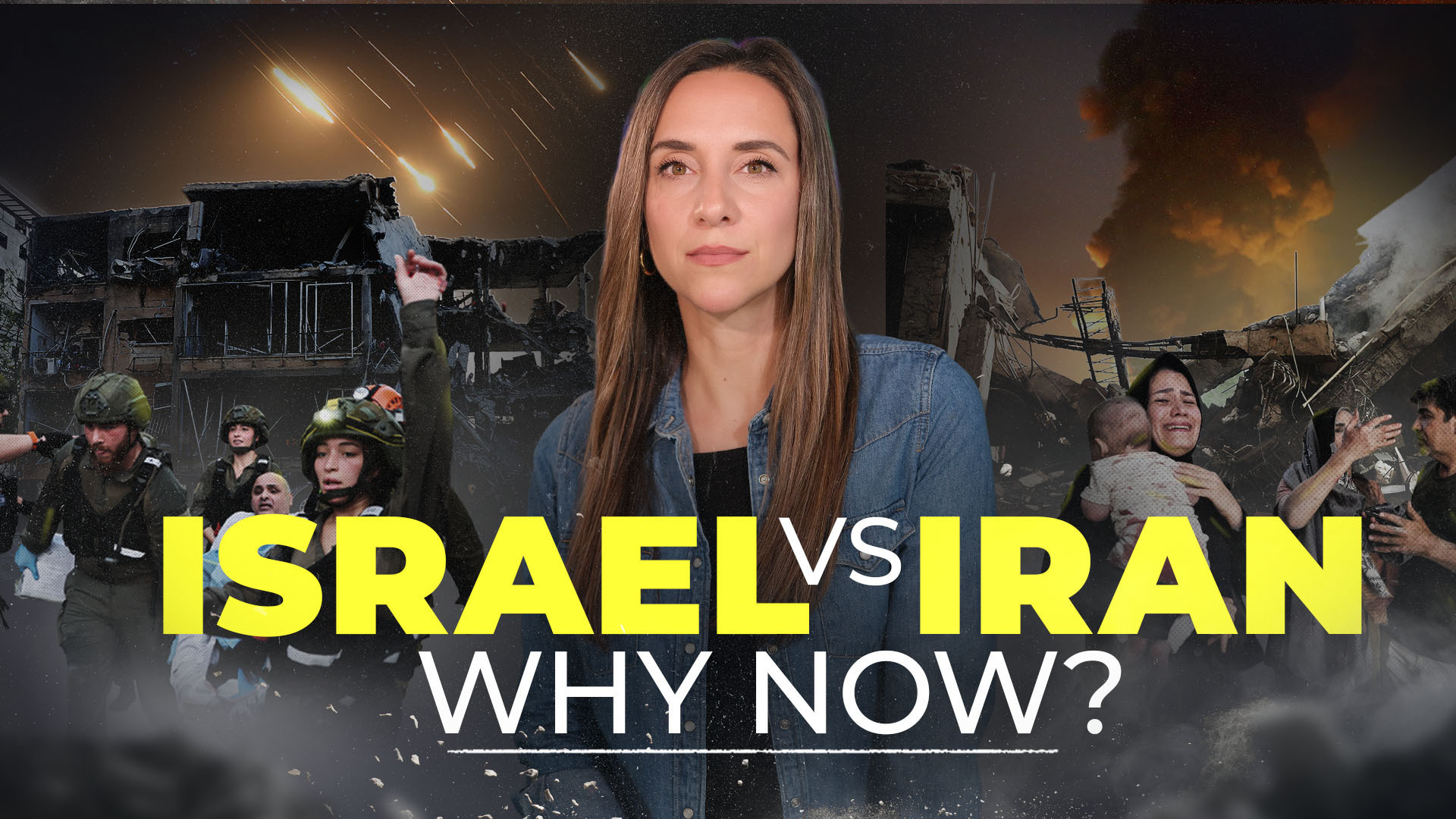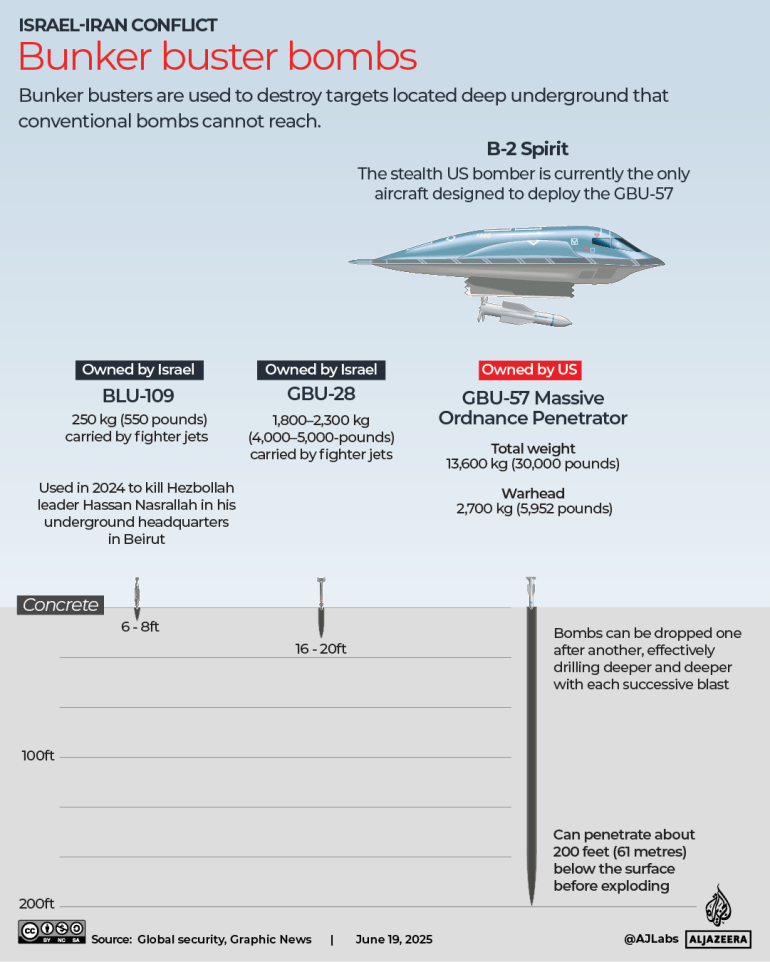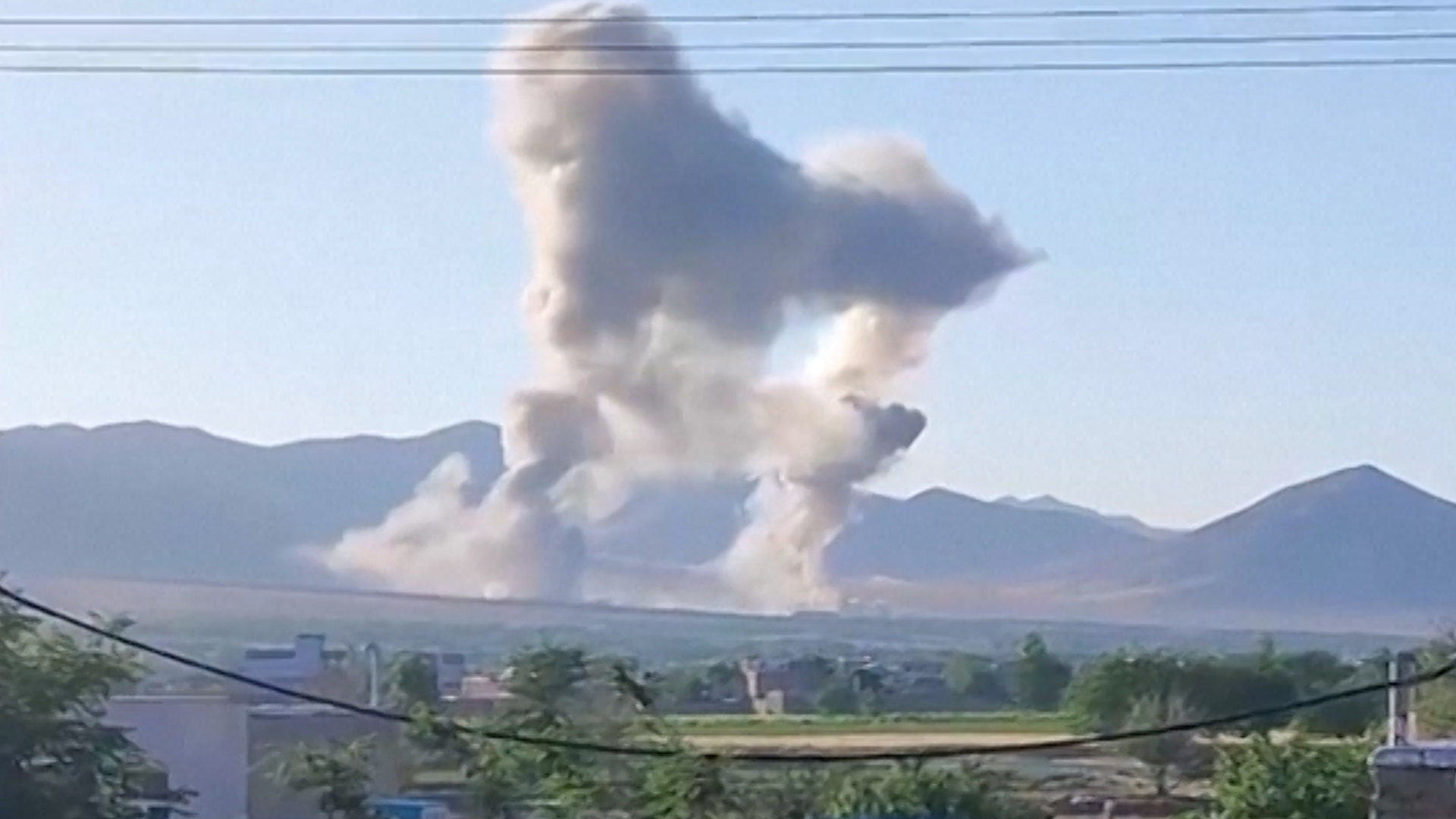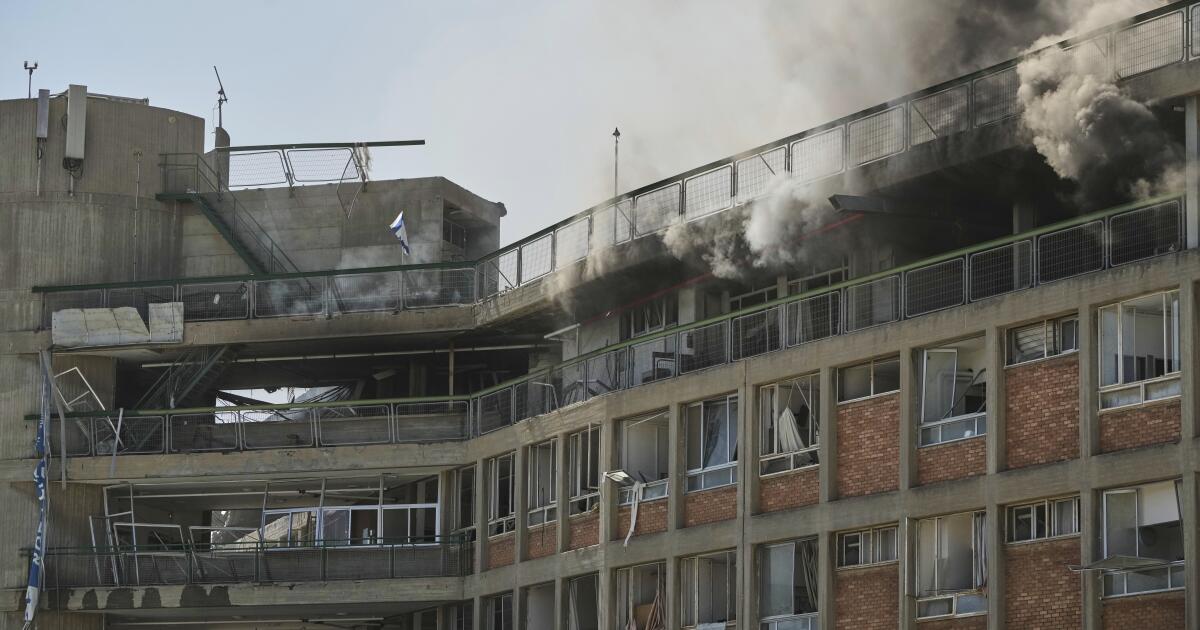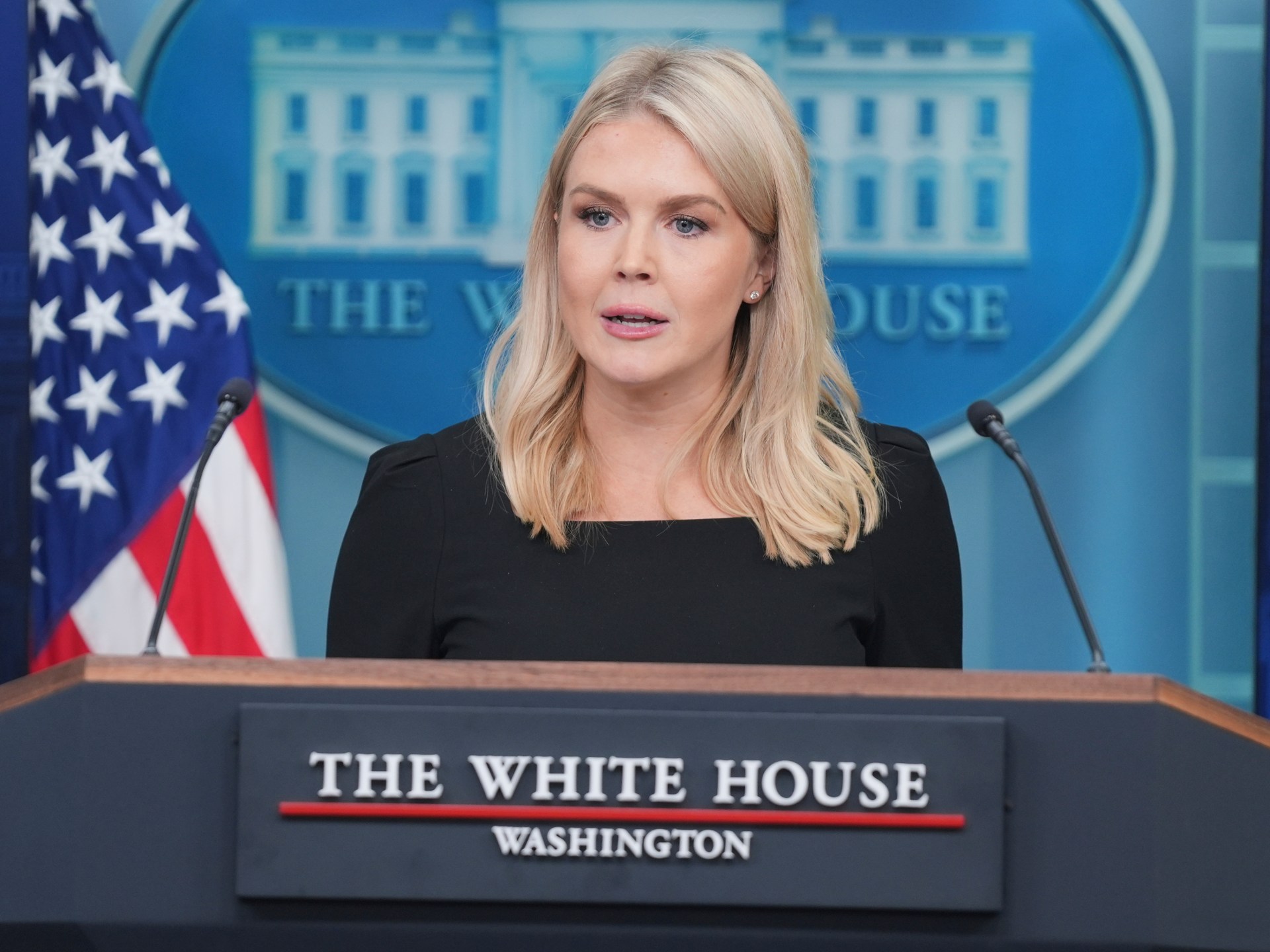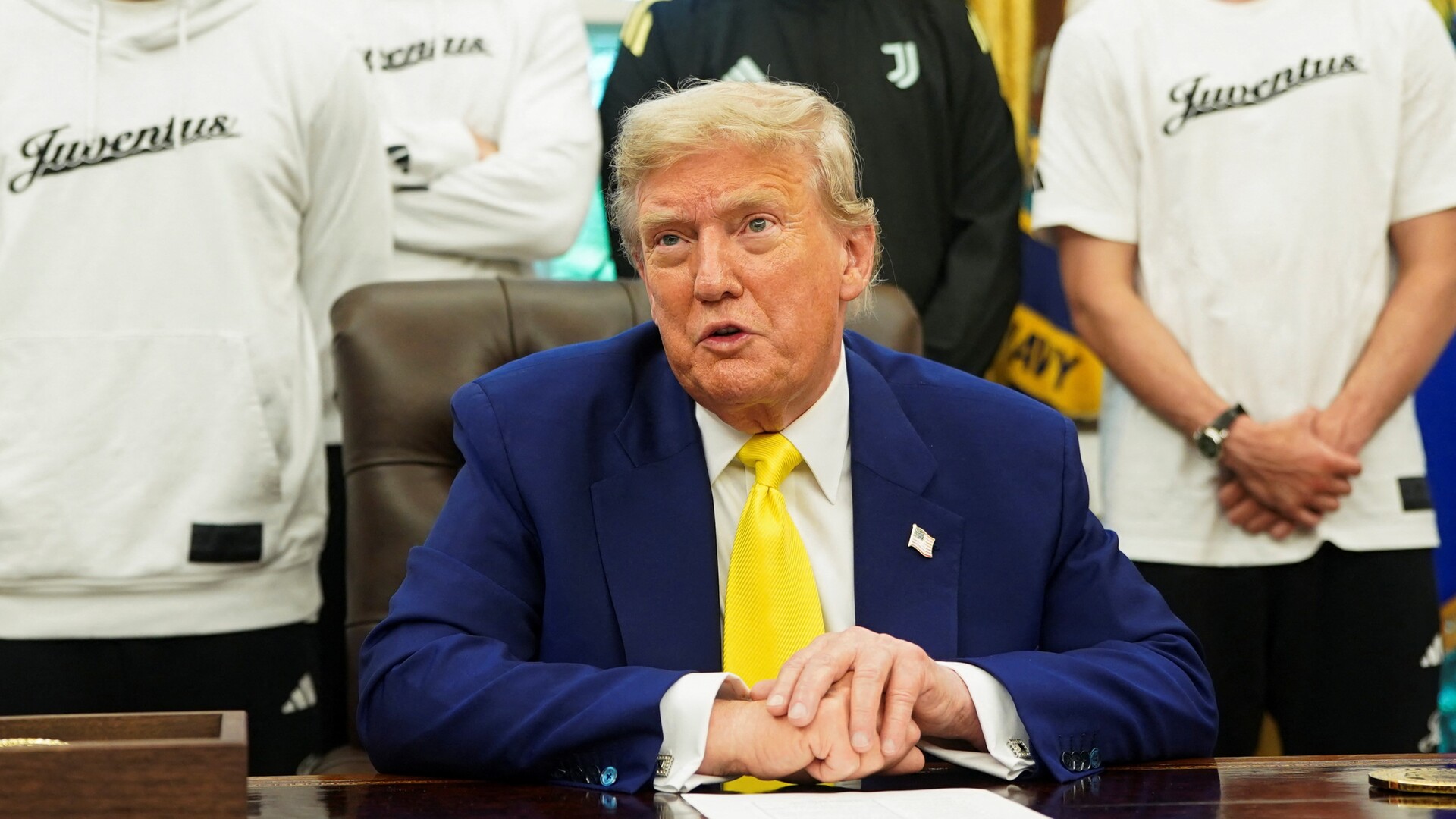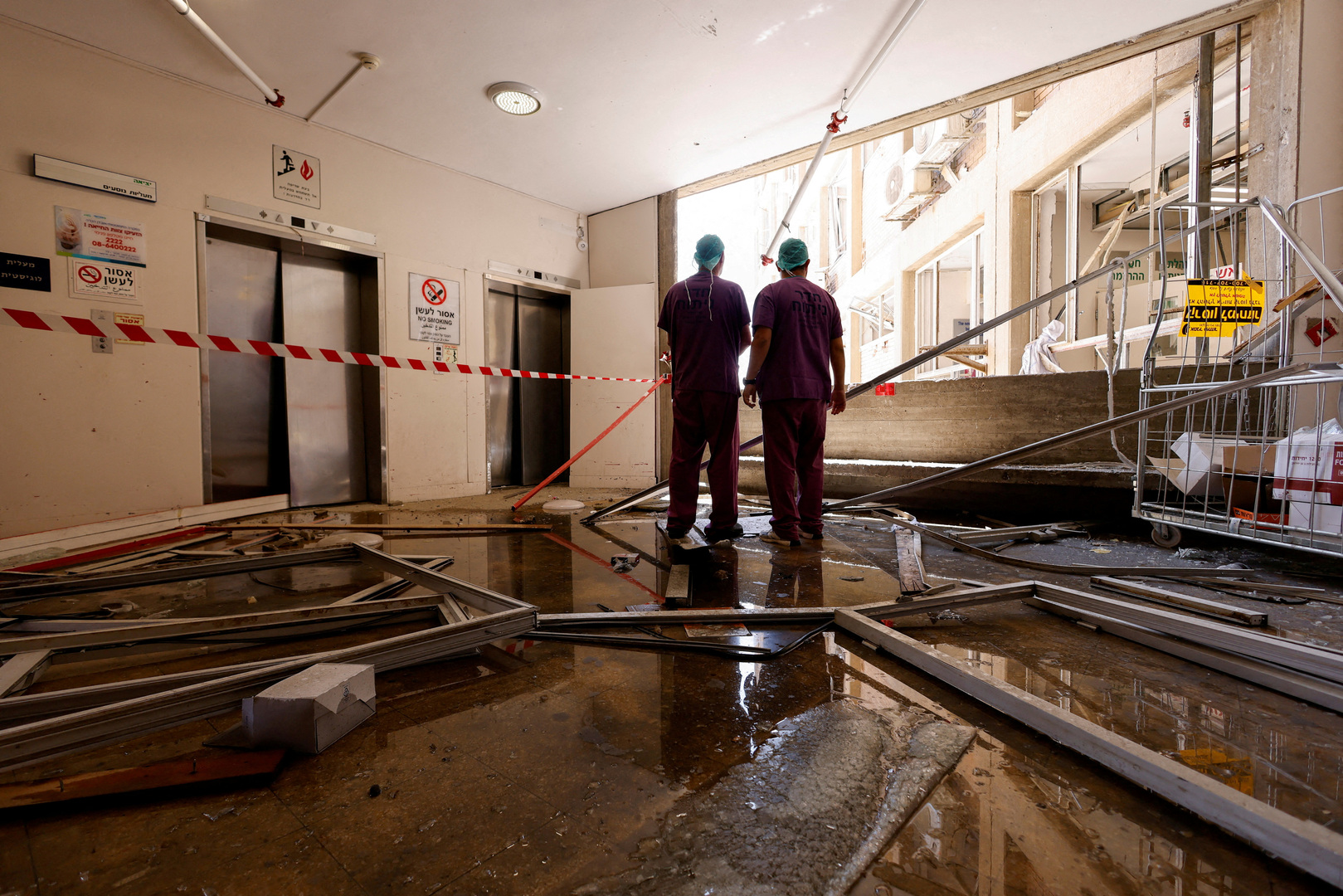As the war between Israel and Iran continues, Yemen’s Houthi rebels say they are coordinating with Tehran.
The Houthis, also known as Ansar Allah, have since 2023 launched attacks on Israel and shipping in the Red Sea in what they say is support for Palestinians in Gaza.
The Houthis are also a close ally of Iran, and now they say that their latest attacks are on behalf of the “Palestinian and Iranian peoples”, according to the Telegram account of Houthi spokesperson Yahya Saree, who added that the Yemeni group were coordinating with “the operations carried out by the Iranian army against the criminal Israeli enemy”.
On Sunday, two days after Israel first attacked Iran in the early hours of June 13, the Houthis announced that they had targeted Israel.
In a televised address, Saree said the group fired several ballistic missiles at Jaffa.
The Houthis are timing their attacks with the Iranians, according to Hussain Albukhaiti, a pro-Houthi political commentator.
The Houthis are launching missiles “after Iran launched its missiles”, Albukhaiti told Al Jazeera. “This way the Zionist settlers [Israelis] keep going back and forth to their shelters so they can live a small fraction of the fear they caused the Palestinian people in Gaza.”
The Houthi attacks are essentially a continuation of their previous periodic missile and drone attacks on Israel. The Israelis have mostly been able to intercept the attacks but some have gotten through, most notably an attack in early May on Ben Gurion airport that injured six people and led to a suspension of flights.
But the Houthi attacks have also had another consequence for Israeli defences, according to Yemen expert Nicholas Brumfield.
“The constant threat of Houthi attacks coming from the south requires Israel to spread out its air defences rather than positioning them all to more effectively [defend] counterattacks coming from Iran,” he told Al Jazeera.
Shipping routes
In November 2023, the Houthis began attacking ships they say were linked to Israel in the Red Sea. International ships that travel to the Red Sea are forced to pass Houthi-controlled areas of Yemen.
The attacks have ceased in recent months, particularly after the Houthis and the United States came to an agreement to stop attacking each other in early May, following a US bombing campaign that is reported to have killed more than 200 people in Yemen.
But the attacks could still resume, and the Houthis never agreed to stop targeting Israel, which itself has also continued to bomb Yemen.
“We had an agreement with the US to stop attacking each other, but Yemen will not obey this agreement if the US joins the Zionists in their attacks against Iran,” Albukhaiti said.
“We remember that Trump cancelled the nuclear deal between Iran and the US,” he said, referring to the US president’s unilateral withdrawal from the nuclear deal between Iran and several Western countries in 2018. Albukhaiti accused Trump of cancelling the deal because it was not in Israel’s interest.
“Yemen will do the same, and will cancel the agreement with the US, because it’s not in the interest of Iran, which is an important ally of Yemen,” he said, referring to the Houthi rebel group as “Yemen”, although the group’s government is not recognised internationally.
Iran has also threatened to close the Strait of Hormuz, which lies between it and Oman. About 20 million barrels per day (BPD), or the equivalent of about 20 percent of global petroleum liquids consumed, pass through the Strait of Hormuz, according to the US Energy Information Administration (EIA).
Analysts said the Houthis could potentially do the same in the Red Sea.
Sea mines are “very low-tech, easy-to-make mines that would nevertheless introduce considerable uncertainty for global shippers,” Brumfield said.
“I don’t think that Iran or Yemen will hesitate to use sea mines if necessary to block the entire shipping lines in our region,” Albukhaiti added.
Risks to Gulf states
There are also fears that the conflict could drag in other countries in the region. The US has bases in a number of countries in the Middle East, and the Houthis have previously been involved in fighting with many of them, including Saudi Arabia and the United Arab Emirates.
If the current conflict spirals, Gulf countries may find themselves threatened by Houthi attacks.
“The Houthis are trying to recover from the US strikes we saw between mid-March and May, and probably aren’t begging to restart those more intensive strikes if they don’t have to,” Brumfield said. “But I also think they’d be amenable to restarting them if they saw themselves as participating in a grand regional war between the US-Israel and the Axis of Resistance, especially if a lot of US military resources are diverted to Iran.”
Albukhaiti said Houthi forces “could also target US bases in the region”, specifically those involved in the coalition against Yemen, such as Saudi Arabia and the UAE, because “we are still at war with these countries”, he said.
The Saudi-led coalition intervened militarily in the war in Yemen between the Houthis and the country’s internationally recognised government in 2015, unleashing a years-long campaign of air strikes. Saudi Arabia ceased hostilities in Yemen in 2022, but has yet to officially reach a deal with the Houthis.
And before that, it had come under Houthi attack. In 2019, Saudi oil production was cut by around 50 percent after Houthi drone strikes on oil plants. Since then, analysts say the Saudis have worked hard to keep more stable relations with the Houthis in order to avoid further attacks.
But despite these efforts, the detente could be forgotten if the Houthis see fit to resume hitting their northern neighbour.
“I don’t think [attacks on Saudi Arabia are] off the table,” Brumfield said. “If elements in Houthi leadership in favour of a military-first approach win out, it’s plausible they would attack the Kingdom [of Saudi Arabia] as part of a general escalation in both the regional and Yemen conflict.”
Brumfield added that the Houthis would, however, have to also keep in mind that Saudi Arabia has provided “diplomatic cover” for the Houthis in the past few years, as it seeks to find a final deal to end the conflict in Yemen. Any attacks from the Houthis would likely make Saudi Arabia abandon that strategy.
Internal strife
Anti-Houthi groups in Yemen have been watching events carefully over the past few months, as they sense an opportunity with the initial US campaign against the Houthis, and now the weakening of the Houthis’ principal ally, Iran.
“The most [the Houthis are] capable of doing is continuing symbolic attacks on Israel or potentially restarting activity in the Red Sea,” Raiman Al-Hamdani, an independent Yemen analyst, told Al Jazeera. “But doing so could provoke a renewed military response from the US, Israel, and the UK, which might weaken their position domestically and open space for anti-Houthi groups to exploit any resulting instability.”
However, analysts say that few of the groups that oppose the Houthis, including the Yemeni government, are in a position to take and effectively govern territory from the Houthis.
And, should those groups mobilise, the Houthis would likely respond, Albukhaiti said.
Houthi forces could target any domestic opponents through “oil and gas fields and platforms” as well as the “airports and water distillation plants” of the countries he said backed the groups, Saudi Arabia and the United Arab Emirates.
